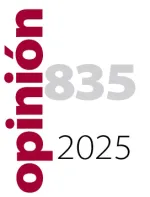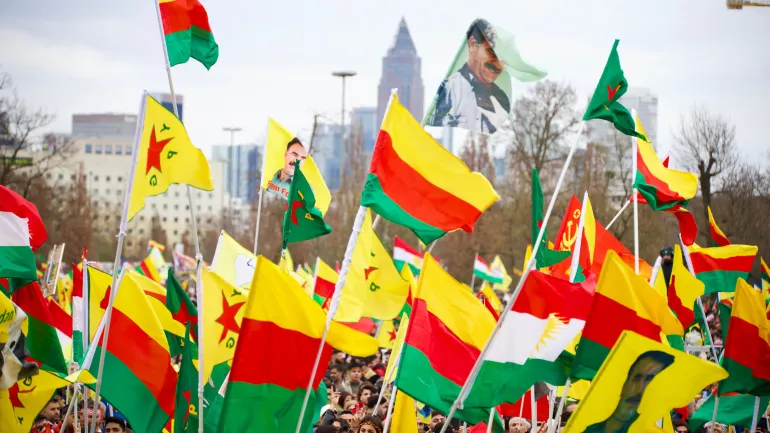Is this the right time? Internal and external dimensions of the “new Kurdish peace process” in Turkey


The PKK’s May 12 decision to end its armed struggle marks a historical turning point, not only for the organization itself and for the Turkish Republic, but also for the whole Middle East region. There is no doubt that an agreement that formally winds up forty years of violence is news to be welcomed positively. However, although such a process can indeed close the chapter of the confrontation between the PKK and the Turkish state, neither the roots of the Kurdish question’s broader sociopolitical issues nor its regional spillovers will be automatically and quickly resolved.
Two months after Abdullah Öcalan, the imprisoned leader of the Kurdistan People’s Party (PKK), issued a letter urging the group to lay down its arms, the organization announced its decision to disband. The declaration can be seen as an interim step on a broader roadmap to solve a long-lasting issue entangling Turkey’s domestic and foreign policies. In fact, this is not the first time a government led by the AKP party and President Recep Tayyip Erdoğan has attempted to initiate a peace process. In 2015, it failed due to a combination of domestic and regional variables. Despite how complicated it remains, ten years later, the situation has drastically changed.
From an internal angle, Öcalan’s call comes after a decade in which the Turkish state has effectively achieved military supremacy, and the PKK’s modus operandi to fight for greater rights and autonomy has lost support among the Kurds in favor of the more moderate pro-Kurdish DEM party. This is demonstrated by the latter’s leadership playing a significant role in the “behind the doors” talks with Öcalan and the government since October. The DEM seems to support the PKK’s conditions for “peace and democratic solidarity”: Öcalan directly leading the process, improving Kurds’ sociopolitical rights, and guaranteeing solid legal measures. Yet, with no details released, the government claims it has made no concessions, and the DEM Party is still expected to announce a concrete roadmap.
This lack of clarity captures the different attitudes of – and within – the ruling coalition toward the process. While Erdoğan’s ally Devlet Bahçeli, leader of the ultranationalist MHP party, enthusiastically opened it, the President and his closest circles have mostly and more cautiously remarked that the process is part of a “terror-free Turkey” initiative. Therefore, many see Erdoğan’s willingness to resolve the Kurdish issue as a political maneuver to position himself as the one who ended decades of “PKK terror”, but especially to consolidate his hold on power. Such a situation puts the pro-Kurdish party in an uncomfortable spot. Although Erdoğan may, to some extent, make certain concessions, such as enlarging the Kurds’ constitutional rights, he might seek DEM’s support to change the constitution allowing the president, serving his last term, to run again for the 2028 elections. However, it remains unclear whether the former pro-Kurdish party’s leader, Selahattin Demirtaş, and other politicians will be released, what Öcalan’s and PKK militants’ destiny will be, and whether the government will end the practice of unseating the popularly elected mayors of the DEM party.
Vis-à-vis these risks, what brought the two parties closer is also the shifting regional dynamics. The PKK’s statement underlines that “current developments in the Middle East […] also make the restructuring of Kurdish-Turkish relations inevitable”. Thus, the war in Gaza and the fall of the Assad regime in Syria have reshuffled the cards. While Turkey sees many windows of opportunity, the Kurds face uncertainties about their future. Building on its relations with Syrian rebels, Ankara now enjoys significant leverage over the new Syrian government led by former Hayat Tahir al-Sham (HTS)’s leader Al-Sharaa and sees the possibility to gain what it has long sought: the dismantling of the PKK’s Syrian offshoot, the Syrian Democratic Forces (SDF), and the end of U.S. cooperation with their armed branch People’s Defence Units (YPG). While these groups have reached general agreements with the new Syrian government for a peaceful transition, it remains to be seen whether all militants will accept the terms or new splinter groups formed by hardliners in Syria and Iraq will emerge .
For Turkey, it is also a matter of broader geopolitical interests. First, peace with the PKK now could further reduce a weakened Iran’s ability to project power westward and support PKK-affiliated groups in Iraq. Second, as Turkey’s handling of the broader Kurdish issue has also often complicated its engagement with the U.S. and the European Union, addressing it could lay the groundwork for more stable relations. Washington’s current policies seem to confirm a greater margin of action for Ankara. President Trump appears prone to continue disengaging from the region and has frequently praised his good personal ties with Erdoğan and Turkey’s role in stabilizing the region. Although more cautious, the EU is considering modalities to include Turkey in its emerging security architecture. All of this comes at a time when Ankara is trying to reemerge as a mediator in the Ukraine war.
Nonetheless, Erdoğan’s moves, this new Kurdish peace process, and Turkey’s international credibility all lie on the brink of thin ice. If the Kurdish issue is framed as a matter of democratic progress, then Turkey’s growing authoritarianism raises serious doubts. Kurdish communities expect not only the end of armed conflict but also genuine sociopolitical reforms. DEM party’s MPs declared that “it is time to draft a new Constitution that will erase the century-old policies of denial and assimilation”. Özgür Özel, leader of Turkey’s main opposition Republican People’s Party (CHP), has repeatedly echoed these tones. Yet, it remains uncertain whether his stance reflects the broader will of his support base or Turkish society at large. For sure, changing negative deep-seated narratives and fostering reforms demands a shift at all levels of society.
Here lies the major impediment. The recent detention of Istanbul Mayor Ekrem İmamoğlu is a stark reminder of the government’s fear of pluralism, especially against figures able to gain cross-cutting consensus through depolarizing rhetoric. Ironically, the ruling coalition, which has consistently accused the main opposition party of collaborating with the PKK through the DEM Party, now finds itself negotiating with those very actors. However, the government’s propaganda apparatus has effectively shaped public perception. Aware of the potential setbacks of such a delicate balancing act, Erdoğan left his ally, Bahçeli, at the forefront of this new initiative and preferred to conduct this process in an ambiguous manner. This prevents the public from knowing the content of the constitutional amendment package to be submitted to the Parliament and what is being proposed in return for the support from Kurdish MPs. On the external front, the Turkish government is also conscious that, should Syria remain fragmented and Turkey be confronted with Israel and Iran’s objectives, Kurdish groups’ demands might reemerge in different forms.
In this ever-changing scenario, Erdoğan seeks his own political benefit regardless of the process’ outcome. If it succeeds, he can claim eternal credit for ending a decades-long insurgency and enter the next elections stronger than ever. If it falters, he can tighten his grip on power by justifying harsher crackdowns on the opposition and resuming military operations against Kurdish militias. The moment is certainly historic, but lasting peace will require more than political manoeuvres. It demands clarity about the process and commitment to genuine democratic reform. Until Turkey embraces this path, the Kurdish issue will continue to be an open wound affecting the country’s internal and external dimensions.
Keywords: Turkey, PKK, Öcalan, Erdogan, Kurdistan, Syria, AKP, DEM, peace process, political rights
All the publications express the opinions of their individual authors and do not necessarily reflect the views of CIDOB or its donors